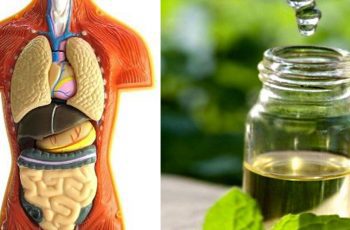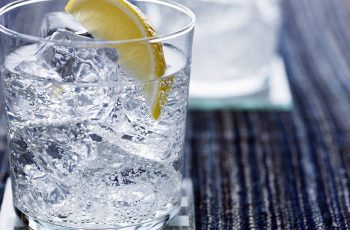Acne is a common skin condition that affects people of all ages. It can cause pimples, blackheads, and other blemishes on the skin. Oil production, bacteria, and dead skin cells cause acne.
While acne is not a severe health problem, it can be uncomfortable and lead to feelings of self-consciousness. If you are experiencing itchy acne lesions, an effective treatment may be available to help provide relief.
What Does It Mean When an Acne is Itchy?
Itching is the most common and significant symptom associated with acne because of its inflammatory nature. As the skin reacts to the bacteria building up within a clogged pore or hair follicle, inflammatory responses often cause itching.
In some cases, there may also be acne-causing bacteria present, which can cause an even more intense itch due to inflammation exacerbated by the bacteria’s presence.
Additionally, some people may be prone to developing contact dermatitis due to overexposure to certain skincare products or allergens in their environment which can further cause itching sensations on top of any inflammation caused by acne breakouts.
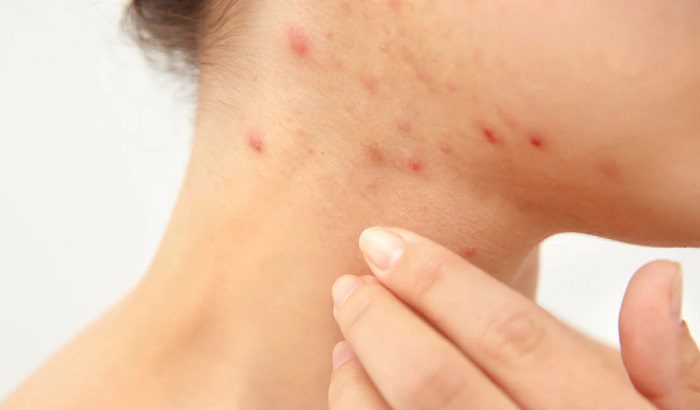
Leading Causes of Itchy Skin Acne
Cystic Acne
Cystic acne is caused by the overproduction of sebum (the oil produced by your body). This excess oil combines with dead skin cells to form clogged pores infected with bacteria. This infection leads to inflammation which causes pain and skin-colored bumps associated with cystic acne.
Other contributing factors include genetics, hormones, stress, smoking, vaping, and certain cosmetics or skincare products that may further irritate the skin.
Bacterial Folliculitis
Bacterial folliculitis is an infection that occurs when bacteria invade hair follicles. This can be caused by various factors, including using contaminated towels or razors, sharing makeup with someone who has an active infection, or having contact with infected water. In addition, vaping people may also be more prone to bacterial folliculitis due to the nicotine in e-cigarettes irritating the skin.
Pityrosporum Folliculitis
Pityrosporum folliculitis is caused by an overgrowth of a yeast-like fungus known as Malassezia furfur (or simply M. furfur). This fungus thrives in warm, humid environments and feeds off the natural oils produced by your skin. This overgrowth can lead to inflammation of the hair follicles, resulting in itchy skin or blemishes that are often mistaken for acne.
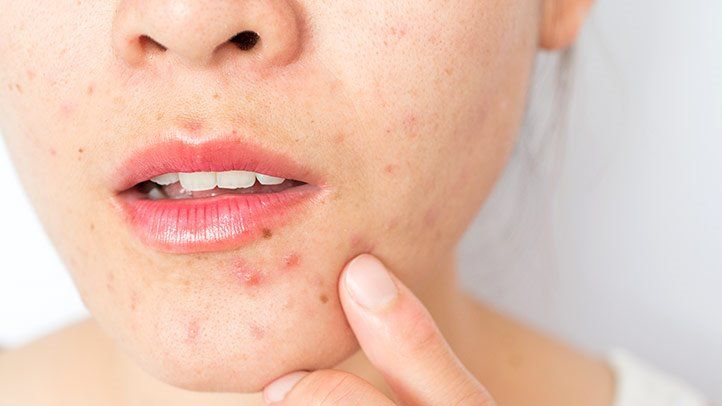
What Makes the Acne Itch Worse?
Vape Products
Using vape products can make itchy acne worse due to their high nicotine concentration and other chemicals that can irritate already sensitive skin. Additionally, touching your face with unclean hands can add more dirt or oil to your skin, leading to further irritation and worsening existing itchiness. As such, people who use vape products should take extra care with their skin hygiene to minimize irritation.
Use of Harsh Scrubs
Using harsh scrubs or overly drying products on your dry skin can aggravate existing symptoms like itching or burning sensations. In addition, these products may be too abrasive for sensitive facial skin and will only lead to further irritation if used too frequently or aggressively. For this reason, it’s essential to stick with gentle cleansers specifically designed for sensitive facial skin when treating acne-prone affected areas of your face.
Sweating Excessively
Sweating can also cause itchy skin flare-ups. This is because sweat contains oil, which clogs pores and traps bacteria on the skin’s surface. The acne-causing bacteria then multiply and causes breakouts that are often accompanied by itchiness. To reduce this type of acne, use an over-the-counter cleanser that contains salicylic acid or benzoyl peroxide to clear away excess oil and kill acne causing bacteria. Additionally, showering after exercise may help keep sweat at bay and minimize possible breakouts.
Stress
Stress is another common culprit behind itchy acne flare-ups. Stress triggers hormones called cortisol that increase sebum production in our skin — an oily substance that clogs pores and will spread bacteria. Taking time to wind down after a stressful day or trying meditation or yoga may help reduce stress levels and minimize the chances of having an itchy acne breakout.
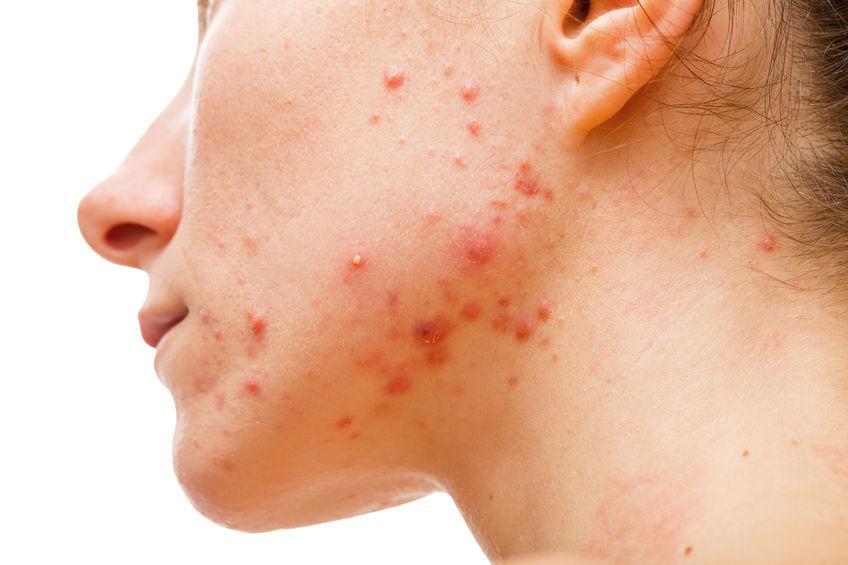
Why Avoid Scratching the Affected Area?
Scratching acne may seem like a good idea, but it does more harm than good in the long run. Not only does crossing increase the chance of infection, but it can also lead to scarring and further irritate your affected skin.
Scratching can also cause inflammation which triggers the release of more oil into the skin, resulting in more pimples and breakouts. In addition, the more you scratch your skin, the harder it becomes for your body to heal naturally.
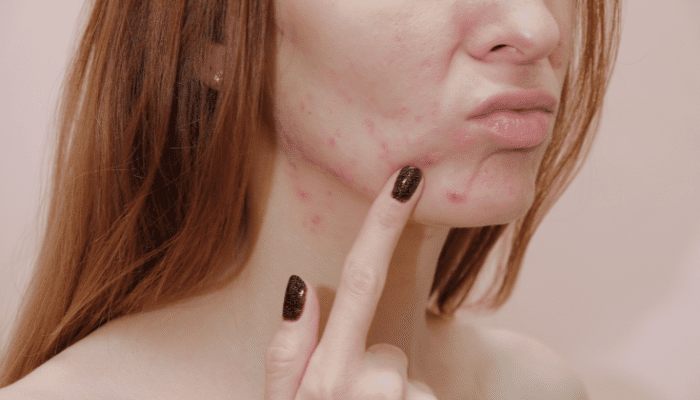
Additionally, scratching them could worsen symptoms if you have been using vaping with nicotine to control your acne symptoms. This is because nicotine inhibits healing, making it harder for your skin to repair itself from any damage caused by scratching or popping pimples. As a result, any scratches or blemishes you might have caused are likely to last much longer than they usually would.

How to Prevent Itchy Acne?
Clean Your Device Regularly
The first step to preventing itchy acne is to keep your device clean. Over time, residue from e-liquids can build up on your vape device, which can cause bacteria to grow and irritate your skin. To avoid this issue, clean all your vape parts regularly—including the coil, tank, and mouthpiece.
Choose the Right E-Liquid
Another way to prevent itchy acne is to choose the right e-liquid for your device. Typically, e-liquids contain propylene glycol (PG) or vegetable glycerin (VG). PG is known for its intense flavor production. VG creates thicker vapor clouds; however, some people with sensitive skin may find that VG causes irritation and itchiness when inhaled over time. If this sounds familiar, consider switching to an e-liquid with a higher PG ratio.
Keep Your Skin Hydrated
Lastly, ensure that you’re keeping your skin hydrated to prevent itchy acne caused by vaping. A moisturizer after showering can help soothe dryness and irritation while protecting your skin from further damage. Additionally, natural oils such as jojoba oil or argan oil can help retain moisture in your skin cells while providing nutrients like vitamins C and E that are beneficial for overall skin health.
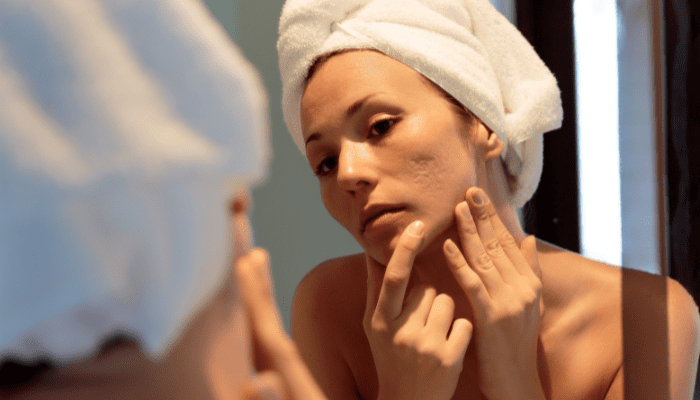
Best Acne Treatments for Itchy Acne
Cleanse Your Skin Regularly
The first and most important step in acne treatment is cleaning your skin regularly. This will help remove any dirt, oil, or other debris trapped in your pores and exacerbate the itchiness of your acne.
Make sure to use a gentle cleanser or face wash so as not to irritate your skin further. Also, try to avoid touching or scratching your acne as much as possible—this can worsen the itching and cause scarring.
Moisturize Your Skin
Another important step in managing itchy acne and acne treatment is keeping your skin moisturized. This will help reduce inflammation and lock in moisture, so your skin stays hydrated throughout the day.
Choose a moisturizer specifically formulated for sensitive or acne-prone skin and apply it twice daily after cleansing. You should also look for a moisturizer with ingredients like aloe vera or chamomile that can help relieve itching and irritation caused by skin conditions.
Topical Treatments
Topical treatments are one of the most common therapy to treat itchy acne. Topical medications come in various forms, including creams, gels, lotions, and ointments. These topical medications reduce inflammation caused by topical steroids and ease mild itching caused by acne.
Commonly used topical acne treatments for itchy acne include benzoyl peroxide, salicylic acid, sulfur, and retinoids. These products can be found over-the-counter at most pharmacies or supermarkets or prescribed by your doctor.
Oral Acne Medications
Oral acne medications are another way to treat breakouts that your doctor or dermatologist may recommend. Commonly prescription medications include antibiotics, birth control pills, and isotretinoin (Accutane).
Antibiotics kill bacteria on the skin’s surface, while birth control pills can help regulate hormones, leading to fewer breakouts. Isotretinoin is usually reserved for more severe cases of acne that have not responded to other forms of treatment.
This acne medication reduces sebum production in the skin, which helps reduce pimples and other symptoms associated with acne, such as redness and inflammation.

Final Thoughts
In conclusion, itchy acne can be a frustrating and uncomfortable condition to deal with. Fortunately, you can take steps to reduce the itching sensation associated with acne. By cleansing your skin regularly, moisturizing, using topical acne medication, and taking oral medications prescribed by your doctor or dermatologist, you can effectively manage the symptoms of itchy acne and keep your skin healthy and clear.
Frequently Asked Questions
Does itchy acne mean it’s healing?
No, itchy acne is not necessarily a sign that it is healing. Instead, itching can be caused by the inflammation associated with acne and other factors, such as dryness or sensitivity to certain products.
What does itching in acne mean?
Itching in acne can be caused by inflammation, dryness, or sensitivity to certain products. It is important to speak with your doctor or dermatologist to determine the underlying cause of your itching so that they can provide you with appropriate treatment options.
Does itchy mean healing or being infected?
The sensation of itching can signify that the healing process has begun. This is because all activity stimulates your nerves at your wound site. But, unfortunately, our brain interprets this as annoying, such as an insect bite or skin irritation from windburn (or even being outside).
What stage of healing is itching?
The next wound-healing stage is where the pain and itching begin. In this phase, inflammatory cells rush to a site on your body that has been damaged to help clean it up before new ones can take over.

